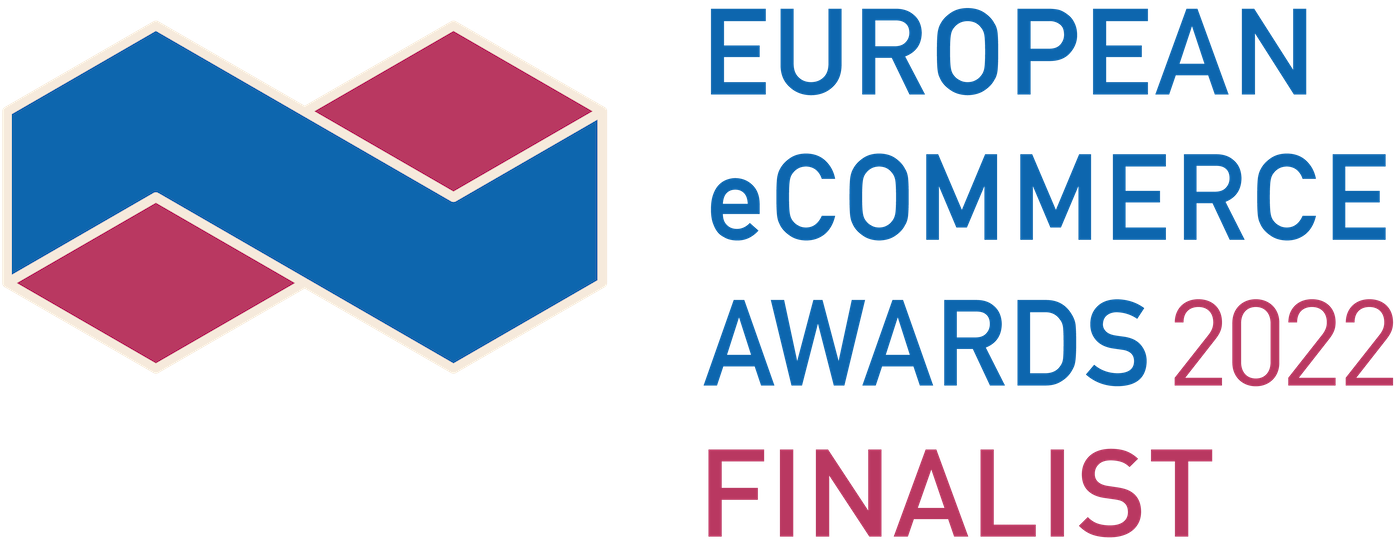Why is it a good idea to advertise on Facebook?
Have you ever met someone saying that social media platforms don’t have any impact on sales and that you can use them to advertise your brand or increase traffic to the site, but you shouldn’t really count on any new leads? Obviously, it’s totally untrue and you can easily verify that by looking at numerous studies. But let’s start with the popularity of social media. According to the data discussing the first quarter of 2020, every day even 1.73 billion people used Facebook. This means that every fourth inhabitant of our planet is an active Facebook user. The number of people taking advantage of the possibilities offered by social media platforms is constantly increasing and reaches over 3 billion if we count Instagram, Whatsapp, and Messenger users as well. As reported by Gemius/PBI, 22.21 million of Polish Internet users visited Facebook only in April 2020. And let us remind you that it’s more than half of the whole Polish population. Google was the only domain that attracted more users at that time. So what’s the conclusion? It’s worth taking advantage of Facebook's power or at least experimenting with its effectiveness. Don’t worry, it doesn’t necessarily mean that you need to spend a fortune to achieve your goal - it’s possible to draw certain conclusions after investing just a dozen or so dollars. If you believe that social media platforms don’t sell, take a look at the results of the study conducted by Hubspot.com: When looking at each source of website traffic you can see three bars. It’s all to show the effectiveness of each form of activity, depending on the market. So, for example, telemarketing is extremely popular in the case of B2B business models but its results in B2C sectors aren’t so impressive anymore. Now, take a closer look at social media bars. As you can see, B2C business models can boast the greatest results this time and the remaining markets also benefit from this lead source. But does it mean that using Facebook Ads will always bring the intended results? We can’t guarantee that but we can tell it’s definitely worth trying out this source of website traffic. Who knows? Maybe it’ll be the turning point changing the effectiveness of your business?
When looking at each source of website traffic you can see three bars. It’s all to show the effectiveness of each form of activity, depending on the market. So, for example, telemarketing is extremely popular in the case of B2B business models but its results in B2C sectors aren’t so impressive anymore. Now, take a closer look at social media bars. As you can see, B2C business models can boast the greatest results this time and the remaining markets also benefit from this lead source. But does it mean that using Facebook Ads will always bring the intended results? We can’t guarantee that but we can tell it’s definitely worth trying out this source of website traffic. Who knows? Maybe it’ll be the turning point changing the effectiveness of your business?
Facebook Ads
If you use Facebook to promote your business, you probably run a fan page. People who think that social media platforms are ideal to advertise only entertainment activities are wrong. It turns out that even funeral companies are active and successfully run their profiles. Therefore, you shouldn’t dismiss any solutions unless you’ve checked them and you know they don’t bring any measurable benefits. According to the AdEx survey conducted by IAB together with PwC in the first half of 2019, social media advertising expenditure in Poland increased by 18.1% when compared to the same time period the previous year. If you have a Facebook account, you can also run Facebook Ads. In this case, you don’t need to spend any extra money, you pay solely for the costs of advertising activities. In the menu, select “manage ads” and then you’ll be redirected to “ads manager”. Ensure proper promotion and advertising of your brand and benefit from the obtained Facebook traffic. The greatest advantage of Facebook Ads is the fact that you don’t need a huge advertising budget to be able to determine the effectiveness of the advertising activities. Therefore, it’d be a serious mistake not to try out the functionalities offered by this social media platform. Its popularity and the increasing amounts of money invested in Facebook marketing by various companies clearly indicate that this advertising method can successfully help you generate new leads, improve sales, or achieve other objectives.
Obviously, your activities won’t take off immediately. So before paying Facebook for the first time, check what to focus on to ensure that your ads bring intended results. All beginnings are difficult so keep reading to find out what are the most common Facebook Ads mistakes and learn how to avoid them.
The greatest advantage of Facebook Ads is the fact that you don’t need a huge advertising budget to be able to determine the effectiveness of the advertising activities. Therefore, it’d be a serious mistake not to try out the functionalities offered by this social media platform. Its popularity and the increasing amounts of money invested in Facebook marketing by various companies clearly indicate that this advertising method can successfully help you generate new leads, improve sales, or achieve other objectives.
Obviously, your activities won’t take off immediately. So before paying Facebook for the first time, check what to focus on to ensure that your ads bring intended results. All beginnings are difficult so keep reading to find out what are the most common Facebook Ads mistakes and learn how to avoid them.
9 most common Facebook Ads mistakes
It’s best to learn from the mistakes of others - this way, you don’t need to spend money on ads that don’t bring any benefits to your business. Get prepared for the upcoming activities. Reading about the mishaps that should be avoided is a very important step you ought to take before launching your first campaign.1. You don’t determine your target group appropriately
One of the greatest merits of Facebook Ads is the possibility to precisely determine your target group, meaning the users that will see your ads. Take your time to define your target group appropriately because this way you’ll avoid spending money on showing your advertisements to people who aren’t interested in the offer. Make sure that your target group isn’t too small and that your budget isn’t too big. If given users repeatedly see the same advertisement, they may feel discouraged and consequently, they won’t be willing to interact with the brand. In such a situation, users may mark your insistent advertisement as SPAM or hide it. It’s crucial to identify potential people who may become interested in your offer. You can specify the gender, age, or location of users to whom the advertisement will be displayed. If you run a local body shop in Chicago, don’t show your ads to the residents of Washington. Be patient - test your ad creative for about a week. Don’t make any decisions after the first 24 hours. Another important issue: it’s not always beneficial to allow automatic ad placement. Of course, you can do it at the very beginning but then try to analyze the data and decide which location is the most effective.2. You choose the wrong advertising objectives
When creating your campaign, you can choose several possible advertising objectives. These can be e.g. "activity", "application downloads" or "video displays". It’s not a good idea to select only one option. As long as it makes sense, it’s advisable to test all the available objectives. If you aim at generating new leads, try to obtain new contacts. On the other hand, if you run an online store, choose the “catalog sales” objective. By selecting these specific options, you’ll suggest to Facebook what you expect from users who see your ads.
3. You don’t monitor the results
You’ve paid a certain amount and created an ad. Now you’re waiting for the results. If you don’t do it, then it’s a serious mistake. If possible, try to regularly monitor your campaigns. Thanks to it, you can take action, refine your activities, test various solutions, and obtain better results. However, as it’s been mentioned above, don’t make decisions to modify your campaigns too quickly. Verify the effectiveness of your ad creatives approximately after 7 days, this will allow you to draw some meaningful conclusions.4. You don't perform A/B tests
If you want your campaigns to achieve optimal results, conduct tests. Target your ad to different audiences and then analyze the results achieved in each case. Check which solutions are the most beneficial and manage your budget accordingly.
5. You don’t formulate the message correctly
Ads should attract the interest of Facebook users. The header you use is one of the most important elements as it can decide whether the Internet user will pay attention to your services or products. This header needs to inform the recipients about the benefits of taking advantage of your offer. However, avoid communicating misleading messages because then, when users become familiar with your product or service range and find out that you lied to them, they’ll certainly feel deterred and won’t finalize the transaction.6. You haven’t implemented Facebook pixel
Its implementation requires entering the appropriate code in the <head> section. This allows you to run marketing campaigns. So what is it about? Well, thanks to the Facebook pixel you can use the ads to remind users who have visited your online store about your products. Nevertheless, this isn’t the only benefit of implementing this tool. Thanks to it, you can also monitor your conversion, page traffic, or the number of users who entered their shopping carts.7. You don’t use exclusions
This solution comes in handy in many situations. Use it if you don't want to display ads to people who have already made a purchase or to those who follow your Facebook page. You can also benefit from it if you don't want to reach people who live in given locations. Obviously, these are just exemplary uses of this functionality and there are many more possibilities.8. You don’t benefit from Lead Ads
After clicking on the advertisement, the user is redirected to a form where some of the data is filled in automatically. The positive thing about this solution is that a person can provide you with information by taking only a few steps, without leaving Facebook. Forms completed directly on FB can be a great method of reducing the costs of lead generation.9. You don’t pay sufficient attention to graphics
Make sure that your ad images don't contain too many words. If the text exceeds 20% of the graphic, the message may reach fewer people. If you want to verify whether the amount of text you use is acceptable, check out this tool. Today we’ve discussed only selected mistakes that can be made if someone decides to run a Facebook Ads campaign on their own. Get prepared for all the promotional activities, explore the possibilities offered by the ads manager, and only then begin your Facebook advertising adventure.
Today we’ve discussed only selected mistakes that can be made if someone decides to run a Facebook Ads campaign on their own. Get prepared for all the promotional activities, explore the possibilities offered by the ads manager, and only then begin your Facebook advertising adventure.












Nice list – I have fallen in some of these traps myself when I started to use Facebook Ads for my store. Some might say that it’s best to learn from mistakes and try out different options but I think such articles pointing out what can go wrong are really useful.